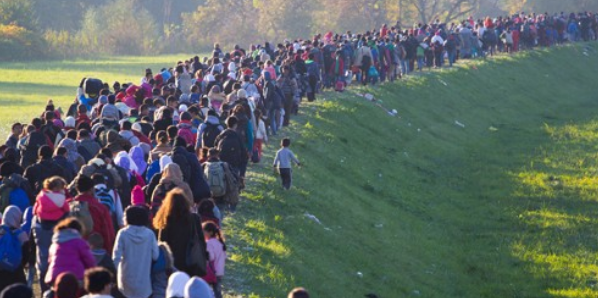
Forced Migration and Refugees: Theoretical and Applied Perspectives of Social Sciences
Description
It is currently estimated that there are more than 65 million forced migrants, of whom more than 21 million are refugees. In 2015, around one million refugees headed for Europe - a situation that became known as the biggest humanitarian crisis after World War II.
The mastery of these subjects will allow a more reflective knowledge and a more informed action on the situation of forced migrations and refugees in the world. At the same time, some issues will be debated that cross the complex and paradoxical reality of forced migration and refugees - seeking to deconstruct stereotyped representations.
With this MOOC participants will acquire theoretical skills but also to discuss contemporary politics, meanings, values, conduct and practices through the Social Sciences approach.
The course is aimed at all those who, for professional or academic reasons, wish to know more about the subject and, in particular, to deepen the contribution that different areas of the social sciences can give: Law and International Relations, Psychology, Social Service, Sociology, Intercultural Relations).
The mastery of these subjects will allow a more reflective knowledge and a more informed action on the situation of forced migrations and refugees in the world. At the same time, some issues will be debated that cross the complex and paradoxical reality of forced migration and refugees - seeking to deconstruct stereotyped representations.
With this MOOC participants will acquire theoretical skills but also to discuss contemporary politics, meanings, values, conduct and practices through the Social Sciences approach.
The course is aimed at all those who, for professional or academic reasons, wish to know more about the subject and, in particular, to deepen the contribution that different areas of the social sciences can give: Law and International Relations, Psychology, Social Service, Sociology, Intercultural Relations).
Course format
Modular approach, with videos, texts and activities.
Optional services
This course is offered in 2 modalities: self-paced and with tutorial support.
Information
| Language |
Portuguese |
|
|
Yes |
| Hours of study | 26 hours |
| EQF-Level | EQF level 3 |
|
|
Open license: (re-)use it |
|
|
Free admittance |
|
|
Free of charge |
|
|
Learn anywhere online |
|
|
Quality assured |
| Massive | Massive |
| Full Course Experience | Full course experience |
| Provider | OpenupEd |
02-Apr-2019
Forced Migration and Refugees: Theoretical and Applied Perspectives of Social Sciences
https://aulaberta.uab.pt/blocks/catalog/detail.php?id=11
It is currently estimated that there are more than 65 million forced migrants, of whom more than 21 million are refugees. In 2015, around one million refugees headed for Europe - a situation that became known as the biggest humanitarian crisis after World War II.
The mastery of these subjects will allow a more reflective knowledge and a more informed action on the situation of forced migrations and refugees in the world. At the same time, some issues will be debated that cross the complex and paradoxical reality of forced migration and refugees - seeking to deconstruct stereotyped representations.
With this MOOC participants will acquire theoretical skills but also to discuss contemporary politics, meanings, values, conduct and practices through the Social Sciences approach.
The course is aimed at all those who, for professional or academic reasons, wish to know more about the subject and, in particular, to deepen the contribution that different areas of the social sciences can give: Law and International Relations, Psychology, Social Service, Sociology, Intercultural Relations).
The mastery of these subjects will allow a more reflective knowledge and a more informed action on the situation of forced migrations and refugees in the world. At the same time, some issues will be debated that cross the complex and paradoxical reality of forced migration and refugees - seeking to deconstruct stereotyped representations.
With this MOOC participants will acquire theoretical skills but also to discuss contemporary politics, meanings, values, conduct and practices through the Social Sciences approach.
The course is aimed at all those who, for professional or academic reasons, wish to know more about the subject and, in particular, to deepen the contribution that different areas of the social sciences can give: Law and International Relations, Psychology, Social Service, Sociology, Intercultural Relations).
Portuguese
Self-paced
0
26
Universidade Aberta
http://eco.imooc.uab.pt/elgg/
[{"file":"\/images\/institution_logos\/UAB_3.png","params":"{\"rotation\":0,\"scale\":100,\"imagedim\":{\"x\":200,\"y\":200,\"w\":200,\"h\":100},\"cropdim\":{\"x\":200,\"y\":200,\"w\":200,\"h\":100},\"crop\":true,\"mainimagedim\":{\"x\":200,\"y\":200,\"w\":200,\"h\":100}}"}]
Modular approach, with videos, texts and activities.
For more information about the EFQ levels click here
EQF level 3
This course is offered in 2 modalities: self-paced and with tutorial support.
1. Select an image to upload (add files)
2. Click 'start upload'
3. Set the crop settings by clicking on four arrows icon.
4. Drag the crop area and zoom or rotate the image if needed.
2. Click 'start upload'
3. Set the crop settings by clicking on four arrows icon.
4. Drag the crop area and zoom or rotate the image if needed.


Always online
Massive
Full Course Experience
OpenupEd
- 0
Universidade Aberta
2025-12-27 11:10:09


